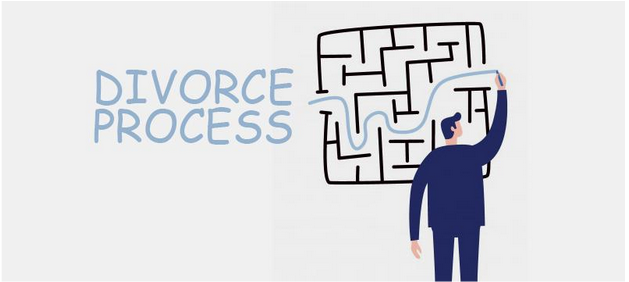How Long Does Contested Divorce Take in Oregon?
“People that go through what I went through and people going through divorce, it's really a difficulty process; it's heartbreaking and it hurts really bad. It can really mess with your head.”

Understanding the Basics of a Contested Divorce in Oregon
The timeline for concluding a contested divorce in Oregon can vary based on multiple factors, such as the court's workload, the complexity of issues involved, and the level of cooperation between the parties. Following the initial filing, there exists a mandatory waiting period before finalization; nevertheless, contested divorces often extend beyond this period due to negotiations, discovery procedures, and potential court hearings or trials. Mediation might be suggested or mandated by the courts to facilitate an agreement outside of trial proceedings. Understanding the duration of the Oregon divorce waiting period necessitates considering these variables, recognizing that each case's unique circumstances directly influence the timeline. While patience and collaboration can expedite the process, preparing for a contested divorce in Oregon should include readiness for a prolonged legal journey.
Filing the Divorce Petition and Serving Your Spouse
Serving your spouse with the divorce papers is the next essential step and is pivotal in adhering to the divorce timeline. This process officially notifies them of the impending divorce and provides them with copies of the filed documents. In Oregon, you have 30 days from the filing date to serve your spouse. There are several methods for serving documents, including hiring a sheriff or a private process server, or in some cases, mail service might be acceptable if your spouse agrees to it by signing an acceptance of the service document. Documentation proving that your spouse was served must then be filed with the court. This step is critical as it establishes the legal groundwork for proceeding with the divorce.
The response from your spouse upon receiving the divorce papers significantly influences the course of action moving forward. They have 30 days to file a formal response with the court. If they contest any part of the divorce petition, this sets in motion a series of legal negotiations or even a trial to resolve contested issues. During this period, both parties may be required to participate in mediation or settlement conferences to try and reach an agreement outside of court, thereby potentially shortening the overall timeline. If an agreement cannot be reached on all matters, a judge will determine the contested issues at trial. Understanding these steps is crucial in navigating through a contested divorce efficiently while being prepared for possible outcomes along each stage.
Mandatory Waiting Period and Case Management Conferences
Case management conferences may be scheduled during or after the mandatory waiting period. These conferences are crucial steps in organizing the progression of a divorce case through the court system. They allow a judge or a court-appointed facilitator to review the case's status and help both parties outline what needs to be done before a trial can occur or a settlement can be reached. Topics such as discovery deadlines, mediation schedules, and trial dates are typically discussed. Understanding when a divorce is final hinges on these procedural elements; they are instrumental in moving a contested divorce toward resolution, influencing the length of time until finalization. Efficient participation and cooperation during these conferences can significantly affect the timeline of your divorce proceedings.
Discovery Process in a Contested Divorce
Given its comprehensive nature, the discovery process can be time-consuming. The duration largely depends on the marital estate's complexity and both parties' willingness to provide complete and timely information. Cooperation between spouses can streamline this phase, but disputes over disclosure can significantly extend it. Parties should be prepared for this stage to take several months, as gathering all necessary documentation and responding to discovery requests meticulously is crucial for a fair outcome.
It's important to approach discovery with diligence and thoroughness. Incomplete or inaccurate information can lead to delays or unfavorable decisions by the court. Engaging experienced legal counsel can help navigate this complex phase effectively. Lawyers can assist in formulating discovery requests that are precise and relevant to your case's specific issues, ensuring that you obtain all necessary information for your contested divorce.
Understanding how long does it take to file for divorce includes recognizing that the discovery process is a pivotal component that can influence the overall timeline significantly. By approaching this stage proactively and preparedly, parties can help ensure that their contested divorce moves forward as efficiently as possible. While patience is often required throughout this process, its completion marks a significant step toward resolving the contested aspects of the divorce and moving closer to finalization.

Mediation and Settlement Efforts
During mediation sessions, both spouses must clearly communicate their priorities and be willing to make concessions. Preparation is key; having all relevant financial documents and a clear understanding of your legal rights can facilitate more productive discussions. Considering the needs of any children involved and striving for solutions that support their well-being can often help in finding common ground. An effective mediator can guide these conversations, ensuring that discussions remain focused and productive.
If mediation leads to an agreement on all contested issues, the agreement is put into writing and signed by both parties. This settlement agreement is then submitted to the court for approval. Once approved by the judge, the terms of this agreement become legally binding on both parties. Successfully navigating through mediation not only shortens the timeline of a contested divorce but also allows for more personalized outcomes that better suit the family's needs.
It's important to acknowledge that mediation might not resolve all disputes, especially in highly contentious cases. If an impasse is reached on certain issues, these may still need to be addressed through court proceedings. Nevertheless, resolving even some matters through mediation can simplify what remains for court adjudication, narrowing down the issues that require judicial intervention. Thus, engaging sincerely in mediation and settlement efforts is beneficial for expediting the divorce process while minimizing emotional strain on all involved parties.
Pre-Trial Motions and Hearings
One key aspect of pre-trial motions is their ability to address immediate needs or disputes without having to wait for the trial's conclusion. This phase requires meticulous preparation and presentation of evidence and arguments to persuade the court of your position on various matters. Engaging with an experienced attorney who can effectively manage these motions is invaluable for individuals navigating through a contested divorce. The outcomes of these hearings can set important precedents for the trial or even encourage parties toward settlement, potentially altering the course of the divorce process.
Pre-trial hearings offer a glimpse into how the court views certain aspects of your case, providing strategic insights that could be beneficial for trial preparation. They also serve as an arena for legal counsel to argue procedural points or clarify legal standards that will govern the trial. Mastery over this phase ensures that all necessary legal groundwork is laid before entering the trial, optimizing your readiness for what lies ahead.
The significance of pre-trial motions and hearings cannot be overstated within the context of a contested divorce in Oregon. They not only pave the way for resolving preliminary issues but also enhance your preparedness for trial by clarifying key legal positions. By actively participating in this phase and utilizing it as an opportunity to address critical matters early on, parties can work towards a more favorable outcome, aligning their strategies with observed judicial tendencies and established legal frameworks.
The Trial Process and Finalizing the Divorce
The judge's decisions at the end of the trial are compiled into a final judgment document, which outlines all the terms of the divorce, including property division, spousal support, and arrangements for children. It is only after this document is signed by the judge and filed with the court clerk that the divorce is officially finalized. This final step marks the legal end of the marriage, allowing both individuals to move forward separately in legal and personal capacities.
Finalizing the divorce involves several administrative tasks, such as transferring titles for vehicles or real estate and splitting retirement accounts or other financial assets according to the judgment. Both parties must adhere strictly to the terms laid out in the final judgment to avoid potential legal complications. Understanding each phase of this process, from filing to finalization, empowers individuals to navigate their contested divorce in Oregon with clarity and a focus on future independence.